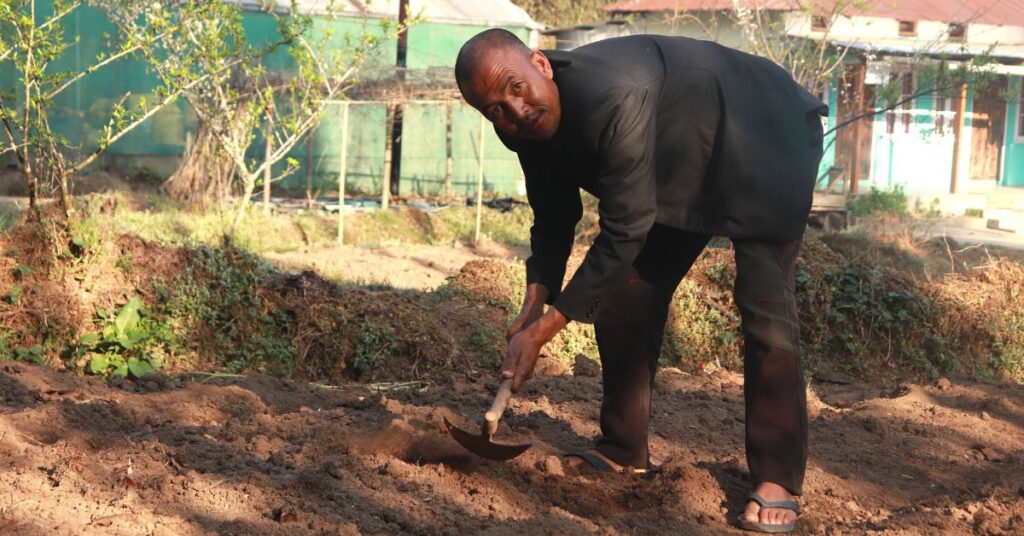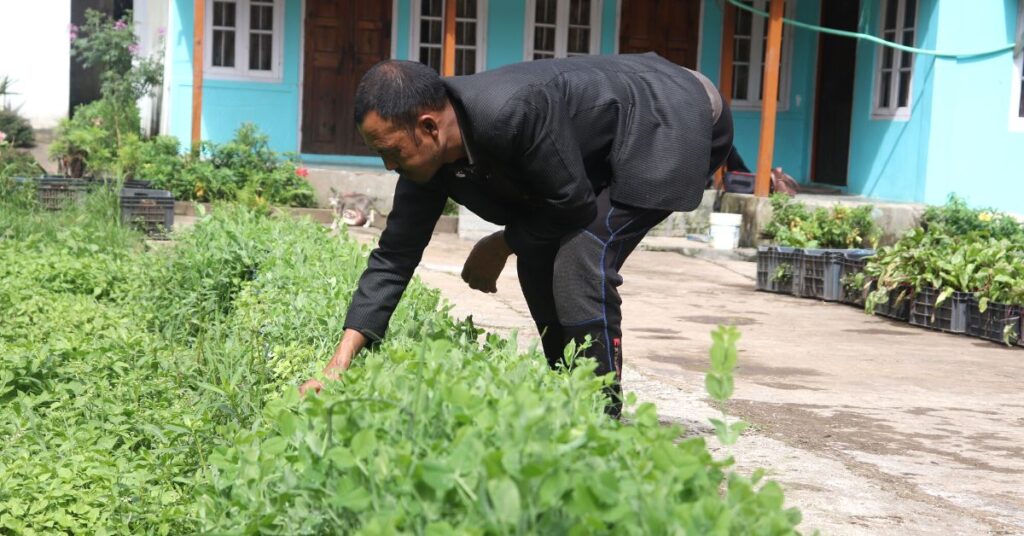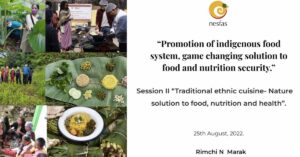Farming has always been a way of life for Indigenous Communities across Meghalaya. Many of these farmers relied on their age-old traditional knowledge and methods of farming to grow their own food and sustain their own families. However, commercialization of farming in the last few decades led to many farmers shifting from their way of farming to chemical farming in order to increase crop yield.
But chemical farming is never sustainable nor healthy, and for Bah Warnington Nongspung, this realization came in 2017. Bah Warnington is an ALC member of Madan Thangsning community and part of the ongoing NESFAS project, “Empowering indigenous Communities through Agroecology Learning Circles (ALCs) for resilient, integrated and innovative natural resource management,” which is supported by MBMA and funded by the World Bank.
“After attending various awareness programs conducted by the agriculture department of Meghalaya, it became clear that chemical farming had long term impacts on human health and needed to be discontinued,” shared Bah Warnington. This startling realization about the ill effects of chemical use along with interventions from the Social Service Centre (SSC) through work related to farming and agriculture led Bah Warnington to shift back to traditional farming practices.

Whilst many others from his community stuck with chemical farming, he has been practicing and advocating for organic traditional farming since and his wife and children are staunch supporters. He is also an indigenous farming champion growing a diverse variety of crops in his fields. Some of the crops he grows in his garden include potatoes, lettuce, yam, coriander, mint, carrot, peas, rice beans, beans, pumpkin, cucumber, cauliflower, garlic, corn, and flemingia root.
“During the olden days, our forefathers cultivated crops without using any chemicals. They made use of the manure and other resources that were available to them to grow tasty and healthy vegetables. Organic farming is extremely beneficial for our health and should be encouraged positively,” shared Bah Warnington.
While sharing the knowledge and experience he’s gained so far through practicing traditional methods of farming, Bah Warnington states that organic farming is also much more cost efficient. In chemical farming, a farmer has to shell out a huge chunk of money for buying chemicals to be used in the fields. And while a farmer can get some profit from selling off the produce, the chemically grown vegetables and crops adversely affect the health of those who consume it.

On the other hand, ever since turning to traditional farming, he has never had the need to buy any chemical fertilizers or pesticides to use in his fields. Instead, he has been able to sell his surplus and make better profits than he used to make. His conscience is also clear, he shares, knowing that the food he brings to his family’s table and the food that he sells to customers are all organic and healthy foods, hugely beneficial for all that eats them.
“Traditional farming has truly changed my life. Not only does it provide healthy and tasty foods, these healthy and tasty foods in turn check and prevent many health issues.” He added.
The only problem agriculture wise he’s faced in the last 6 years has been shortage of water supply in his fields during the dry season which leads to a lower yield in crops. But Bah Warnington is helpful that a viable solution for the water supply will be available soon and he will be able to produce larger quantities of crops and sell produce at a better price when that time comes.
At the current juncture, his biggest challenge is resorting to trying to change the mind of his fellow farmers to shift from chemical farming to traditional farming. Currently, he is the only farmer from his community practicing organic farming.
“I want to encourage my fellow farmers towards a mindset of striving for the betterment of our communities. It is my message to all my fellow farmers to start cultivating organically. It has been hugely beneficial for me and I can vouch that shifting to organic farming will not only benefit the farmers but the whole society too.” he concluded.





